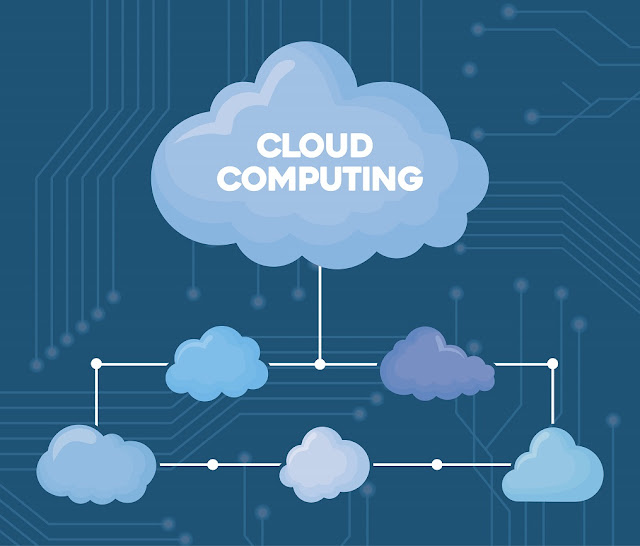Cloud computing has become an integral part of the modern business landscape in recent years. Organizations of all sizes leverage the benefits of cloud services to enhance flexibility, scalability, and efficiency. However, as with any technology, the cloud has challenges. Reach out to the IT Support New York experts right away and get the assistance you need to overcome cloud challenges.
This blog post will explore some common
cloud challenges businesses face and discuss practical strategies to overcome
them.
7 Common Cloud Challenges and Solutions
Security Concerns
When it comes to cloud computing, one
of the top concerns for businesses is security. Storing data and applications
in the cloud can raise questions about the safety and privacy of sensitive
information. With cyber threats becoming increasingly sophisticated, it is
crucial for businesses to address these security concerns before migrating to
cloud. This includes implementing robust security measures such as encryption,
multi-factor authentication, and regular network activity monitoring.
Additionally, businesses should
carefully choose a cloud service provider with a strong data protection track
record and compliance with industry regulations. By taking proactive steps to
address security concerns, businesses can confidently leverage the benefits of
cloud computing while keeping their data safe and secure.
Data Privacy and Compliance
Data privacy and compliance are two of
the biggest challenges associated with cloud computing. When businesses store
their data in the cloud, they entrust their sensitive information to
third-party service providers. This raises concerns about who has access to the
data and how it is being protected. Data breaches and cyber attacks are a
constant threat, and organizations must ensure that their cloud providers have
robust security measures in place.
Additionally, businesses must comply
with various regulations regarding data privacy, such as the General Data
Protection Regulation (GDPR) in the European Union. Failure to meet these
compliance requirements can result in severe penalties and damage a company's
reputation. Therefore, it is crucial for businesses to carefully choose their
cloud provider and establish strong data privacy and compliance protocols to
mitigate these challenges.
Downtime and Reliability
While cloud services offer many
benefits, such as scalability and cost-efficiency, they are not immune to
technical issues or outages. Downtime can occur for various reasons, including
server failures, network problems, or natural disasters. This can result in
businesses being unable to access their data or applications, leading to a loss
of productivity and potential revenue.
Therefore, it is crucial for businesses
to carefully consider the reliability and uptime guarantees provided by their
cloud service provider before migrating their operations to the cloud.
Additionally, implementing backup and disaster recovery plans can help mitigate
the impact of any potential downtime or disruptions. By proactively addressing
these challenges, businesses can ensure that their cloud infrastructure remains
reliable and resilient—moreover, partner with Managed IT Services Atlanta
professionals to keep your business running smoothly.
Cost Management
Cost management is one of the key
challenges organizations face when adopting cloud computing. While the cloud
offers many benefits, such as scalability and flexibility, it can also lead to
unexpected costs if not carefully managed. One of the reasons for this is the
pay-as-you-go pricing model of many cloud service providers, which means that
organizations are billed based on their usage. This can result in cost overruns
if resources are not properly optimized or lack visibility and control over
cloud spend.
To effectively manage costs in the
cloud, organizations should regularly monitor and analyze their usage, optimize
resource allocation, and implement cost management tools and strategies. By
doing so, they can take full advantage of the benefits of the cloud while
keeping their costs under control.
Integration Challenges
One of the main integration challenges
is ensuring seamless connectivity and data synchronization between on-premises
systems and the cloud. This requires careful planning and coordination to
ensure that data integrity is maintained and there are no disruptions to
business operations during the transition. Another challenge is integrating
different cloud services from various vendors, as they may use other protocols
and APIs. This can require additional effort and resources to ensure
compatibility and smooth integration. Lastly, there may be challenges in
integrating legacy systems with cloud services, as older systems may not have
built-in support for cloud integration.
In these cases, custom development or
third-party tools may be necessary to bridge the gap between on-premises and
cloud environments. Despite these challenges, with proper planning and
expertise, businesses can successfully overcome integration challenges and
fully leverage the benefits of cloud computing.
Lack of Cloud Expertise
Moving to the cloud requires a deep
understanding of cloud architecture, security, and management. Organizations
may struggle with properly configuring and optimizing their cloud environments
without the necessary expertise, leading to inefficiencies and increased costs.
Additionally, a lack of expertise can make it difficult to address security
concerns and ensure data protection in cloud effectively.
To overcome this challenge,
organizations can invest in training and certifications for their IT teams or
consider partnering with external experts specializing in cloud technologies.
By building up their knowledge and skills in the cloud, organizations can
better navigate the challenges and maximize the benefits of cloud adoption.
Scalability Issues
Scalability issues can pose a
significant challenge when it comes to cloud computing. As businesses grow and
their needs change, they require a cloud infrastructure that can quickly scale
to accommodate increased demand. However, many organizations struggle with
scaling their cloud resources effectively. This can lead to performance issues,
such as slow response times and decreased availability, which can have a
negative impact on customer satisfaction and overall business operations.
To address scalability challenges,
businesses must carefully plan and design their cloud architectures,
considering workload patterns, resource allocation, and automation.
Implementing scalable solutions, such as auto-scaling groups and load
balancers, can help organizations overcome these challenges and ensure their
cloud environments can seamlessly handle fluctuating workloads.
Conclusion
While the cloud offers numerous
benefits, addressing and overcoming common challenges is vital for a successful
and secure cloud adoption. By understanding the unique obstacles associated
with cloud computing and implementing proactive strategies, businesses can
unlock the full potential of the cloud while ensuring a resilient and efficient
IT infrastructure. Embracing a holistic approach to security, compliance, cost
management, and scalability will position organizations to thrive in the
dynamic and ever-evolving cloud landscape.




.png)





0 Comments